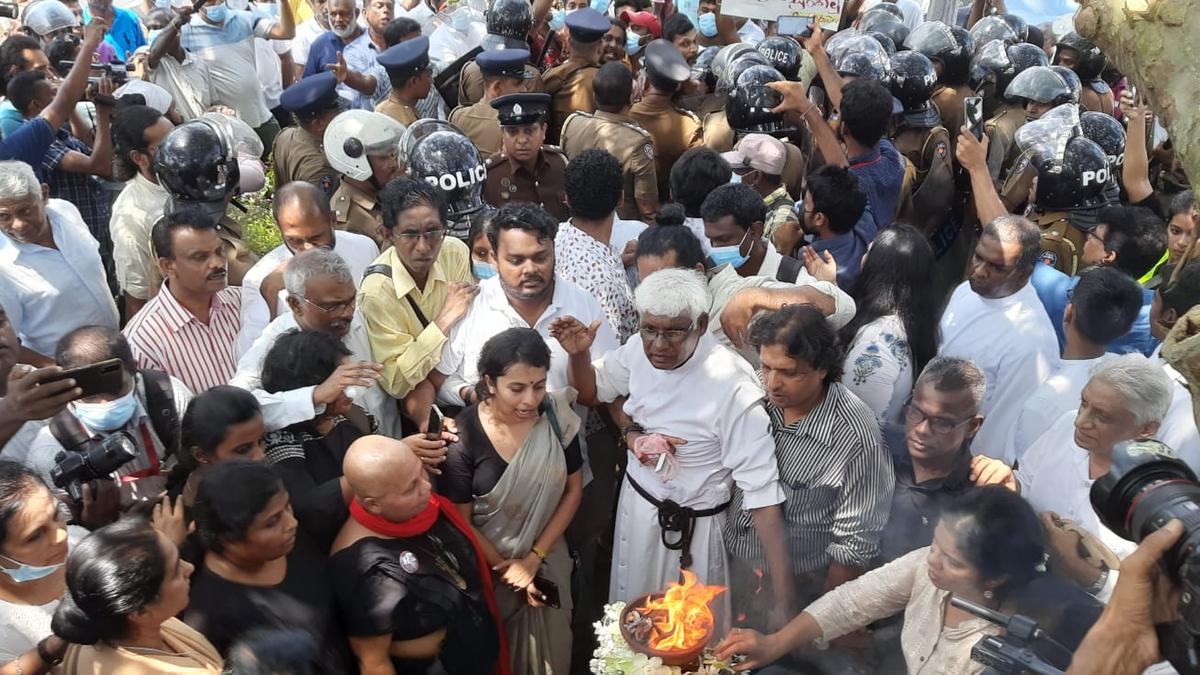
Sri Lanka’s Tamils face arrest as they remember the dead
The Hindu
Sri Lanka civil war: Arrests of Tamils commemorating war dead in Sri Lanka raise concerns over freedom of memorialization.
The recent arrest of four Tamils in Sri Lanka’s Eastern Province — when they commemorated their loved ones killed in the final phases of the civil war in 2009 — has put Tamils’ right to memorialise in sharp focus yet again.
Also read: 40 years since ‘Black July’, little space in Sri Lanka to remember the dead
The police said the arrests were based on magistrate court orders that ruled against holding such commemorative events, citing reasons of “public health” and “attempts to revive” the Liberation Tigers of Tamil Eelam (LTTE) that the Sri Lankan military eliminated.
According to local Tamil media reports, three women, including a university student, and a man were arrested by the police in Sampur, located in the eastern Trincomalee district late on Sunday. Video footage widely shared on social media showed the police dragging a woman from her home.
Another court in the Eastern Province on Tuesday issued an order observing that commemorating members of the LTTE may lead to a “revival of terrorist activities” in the country, and “disrupt people’s everyday lives”. Further, media reports said the police disrupted events held in the Batticaloa and Ampara districts of the Province, where participants prepared and served kanji (porridge) in a symbolic act to remember the gruesome final days of the battle when tens of thousands of civilians were killed in the shelling by state armed forces.
The Police Media Division in Colombo said in a statement that the arrests were made as the suspects “disobeyed” a court order and one of them allegedly attacked a police officer with a knife.
When contacted, a senior police official from the Eastern Province told The Hindu that the arrests were “preventive”. “The Eastern Province is multi-ethnic, with Tamils, Sinhalese and Muslims living peacefully. If some Tamils commemorate members of the LTTE, it may trigger anger among others who faced losses owing to the LTTE’s actions. This is to ensure there is no communal disharmony,” the senior official said, asking not to be named.











